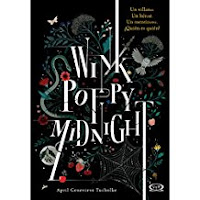For a variety of reasons, gifted students sometimes struggle
to make a career choice. First, if you’re good at a number of different things,
you could be dealing with what’s called multipotentiality…meaning
that you have too many choices, and it’s hard to pick. Second, when you’re very
smart, parents, friends, teachers, etc., might have a lot of expectations
regarding what job you should have. Everyone assumes you want to be a doctor, or
a physicist, or an engineer, or something else that requires a lot of
education, and usually makes a fair amount of money and is pretty prestigious.
With all these opinions, deciding what you
want to do can be very tricky.
So what is a young person to do? How do you select a path?
Dr. Kelly and I heard Jaime Casap, Google’s Chief Educational Evangelist, speak
at a conference a while back, and he said something that really stuck with me.
He said that students should not
be thinking, “What do I want to be?”, instead they should be asking themselves,
“What problem do I want to solve?”
 Let that sink
in a minute. “I want to make sure kids don’t go to bed hungry,” “I want to make
cars go faster,” “I want to make sure our water is safe to drink,” “I want to
help information flow faster,” “I want to cure cancer” – these are all
worthwhile goals to pursue. They are a purpose to propel you forward. A lot of
the research regarding gifted adults says that they need to find things to do
in life, be it a job or a hobby, that they find fulfilling. They don’t feel
happy just doing something because it makes them a lot of money, or because it
meets others expectations, it needs to give their life meaning.
Let that sink
in a minute. “I want to make sure kids don’t go to bed hungry,” “I want to make
cars go faster,” “I want to make sure our water is safe to drink,” “I want to
help information flow faster,” “I want to cure cancer” – these are all
worthwhile goals to pursue. They are a purpose to propel you forward. A lot of
the research regarding gifted adults says that they need to find things to do
in life, be it a job or a hobby, that they find fulfilling. They don’t feel
happy just doing something because it makes them a lot of money, or because it
meets others expectations, it needs to give their life meaning.
You may have heard
the phrase “follow your passion,” but the thing about passion, as anyone who’s
been in a romantic relationship can tell you, is that flares brightly, and then
it tends to wane. Passion can be brief. Purpose is something different. Purpose
requires knowing where you want to go, setting goals, and pursuing those goals.
It requires the commitment of time, energy, and resources. It also demands a
certain amount of self-awareness, because understanding these things about
yourself is not usually a quick and easy process.
As you’re
thinking down the road and wondering which career might be right for you, we
encourage you to talk to a career counselor, who can ask where your interests
lie, what your talents are, and what gives you purpose, and then help you with
the self-awareness part. Then remember, most people will change jobs between 8 –
15 times in their lifetime, and many of the jobs you might eventually hold have
not even been thought of yet. Twenty years ago, “Google’s Chief Educational
Evangelist” was not a thing! Your purpose may change, your goals might evolve,
and new careers may materialize, but as long as you keep your sights on what
keeps you happy and fulfilled, you should be just fine.













